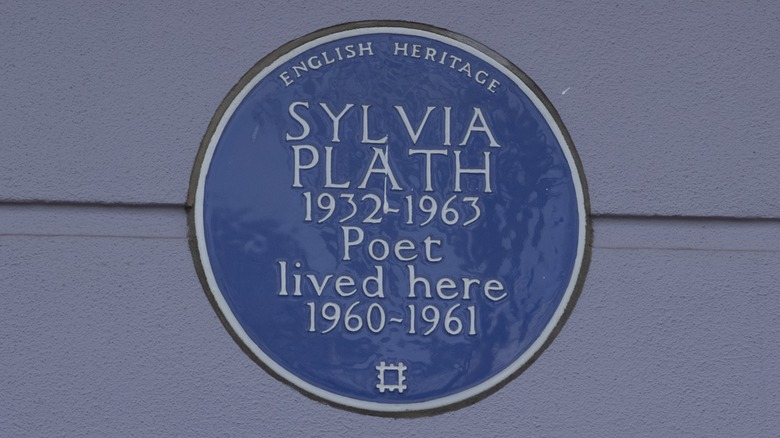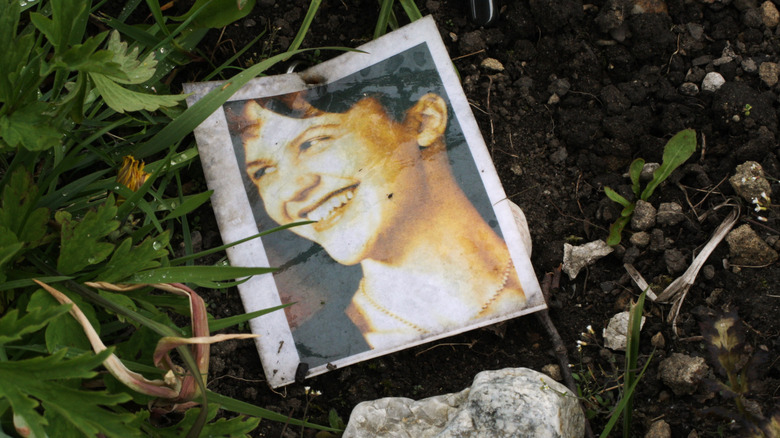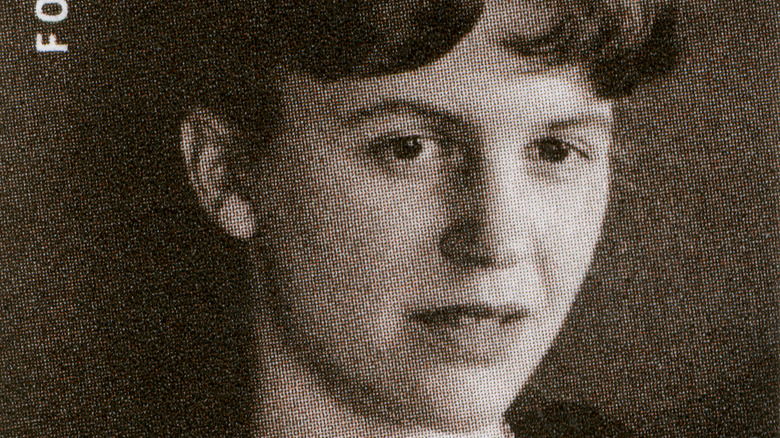The Most Popular Quote From The Bell Jar
"The Bell Jar" was published in 1963. Written by poet and author Sylvia Plath, the book — a roman à clef that's a thinly veiled account of Plath's struggles with depression — is about 19-year-old Esther Greenwood, who moves to New York City from Boston to pursue her dreams of becoming a writer. However, her mental illness spirals out of control and she eventually attempts to kill herself (via Britannica).
Since its publication, "The Bell Jar" has given a voice to those who suffer from depression, making them feel less alone. For those who don't suffer from depression, the book offers a candid look into the difficulties inherent in dealing with mental health issues. It's so hauntingly accurate that when it was published in 1963 — just a month before Plath took her own life, per BBC — the initial reception was mixed.
It wasn't until years later that the book got the attention it deserved. In 1971, publisher Harper & Row described "The Bell Jar" as an "extraordinary work [that] chronicles the crackup of Esther Greenwood: brilliant, beautiful, enormously talented, successful — but slowly going under, and maybe for the last time."
They continued, "The reader is drawn into her breakdown with such intensity that her insanity becomes completely real and completely rational, as probable and accessible an experience as going to the movies." Like any great piece of literature, "The Bell Jar" is full of beautiful quotes that resonate with readers. But there's one that stands out above the rest.
If you or someone you know needs help with mental health, please contact the Crisis Text Line by texting HOME to 741741, call the National Alliance on Mental Illness helpline at 1-800-950-NAMI (6264), or visit the National Institute of Mental Health website.
This quote from Sylvia Plath's seminal novel has a deeper meaning
According to Insider, the most shared quote from "The Bell Jar" is: "I took a deep breath and listened to the old brag of my heart: I am, I am, I am." Having struggled with depression and after surviving her own suicide attempt, Esther is at the funeral of her friend Joan, who has died by suicide, when this line is presented as a thought.
Although the quote comes from a very morbid moment, there is assurance in Esther's "I am, I am, I am." Unlike Joan, she has come out on the other side and is still alive. But while it has become a mantra for many, as Naomi Elias noted in Nylon, the line is also, confusingly, a "self-empowerment slogan commonly embroidered on Etsy merchandise and completely divorced from the dark passage in the book it comes from."
The popularity of the quote has become so ingrained for those who feel misunderstood that it's safe to assume that, in addition to finding itself on cutesy items on Etsy, some of those who love the line may not realize the context behind it or where it even originated. Not that one should not be allowed to love it and relate to it all the same, but it's worth noting how prolific the quote has become when people discuss mental illness.
The Bell Jar continues to inspire generations of women
To this day, "The Bell Jar" remains one of the most important works of literature when it comes to the prescribed place of women in society. Not only does Sylvia Plath's Esther Greenwood buck convention, but she does so in an era where women were expected to get married and have children, and nothing more.
"To [Esther], babies are The Trap, and sex is the bait," Howard Moss writes in The New Yorker. "She is caught between the monstrous fetuses on display in Buddy's ward and the monstrous slavery of the seemingly permanent pregnancy of her neighbor Dodo Conway, who constantly wheels a baby carriage under Esther's window, like a demented figure in a Greek chorus." Thus, "Babies lure Esther toward suicide by luring her toward a life she cannot literally bear."
This thinking is very much on par with that of French writer, feminist, and existentialist Simone de Beauvoir, who was also adamantly opposed to the trappings of marriage and kids hence her open relationship with philosopher Jean-Paul Sartre (via The Guardian). Both de Beauvoir and Plath are feminist icons in their own right, and inherently complicated, as Jezebel points out.
While Plath probably didn't realize the impact she would have on the world, her influence continues to echo and imprint itself on each generation who comes along, picks up "The Bell Jar," and whispers "I am, I am, I am" when the world feels like too much.


